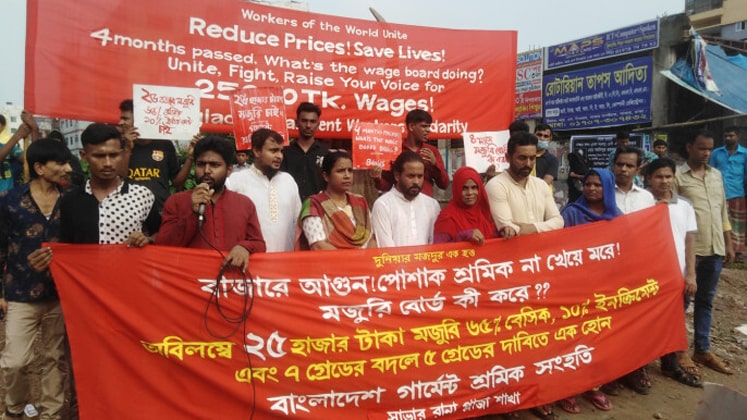
In Svar in Bangladesh’s capital Dhaka, garment workers recently convened a protest rally calling for a minimum wage of Taka 25,000 to account for the escalating cost of living even as they also demanded revision of the basic wage from the current 50 per cent to 65 per cent, alongside an annual increment of 10 per cent, an improvement from the existing 5 per cent.
Reports maintained this adding the protest rally was organised by the Bangladesh Garments Sramik Sanghati participating in which, Taslima Akhtar, the Chair of the Central Committee of Bangladesh Garments Sramik Sanghati, expressed concerns regarding the progress of a wage board formed under worker pressure even as she noted that despite assurances, only two meetings had been held until 10th August 2023, and neither the owners nor the Government had put forward any wage proposals in the second meeting, which she deemed disappointing.
Anjan Das, the Vice President of Bangladesh Garments Sramik Sanghati, highlighted the dire situation faced by garment workers due to rising commodity prices, leading to malnutrition and hardship even as he disputed the owners’ claims of incapacity when confronted with wage increase requests, emphasising that Bangladesh has emerged as the second-largest apparel exporting nation, even as it surpassed China in the European market.
Liakot Ali Mollah, the Chairman of the Minimum Wage Board within the Labour Ministry, announced on 10th August that new wage rates for garment workers would be determined by November and enforced in the subsequent month even as he detailed that the board members would conduct visits to various-sized garment factories across the country and present proposals based on their findings.






